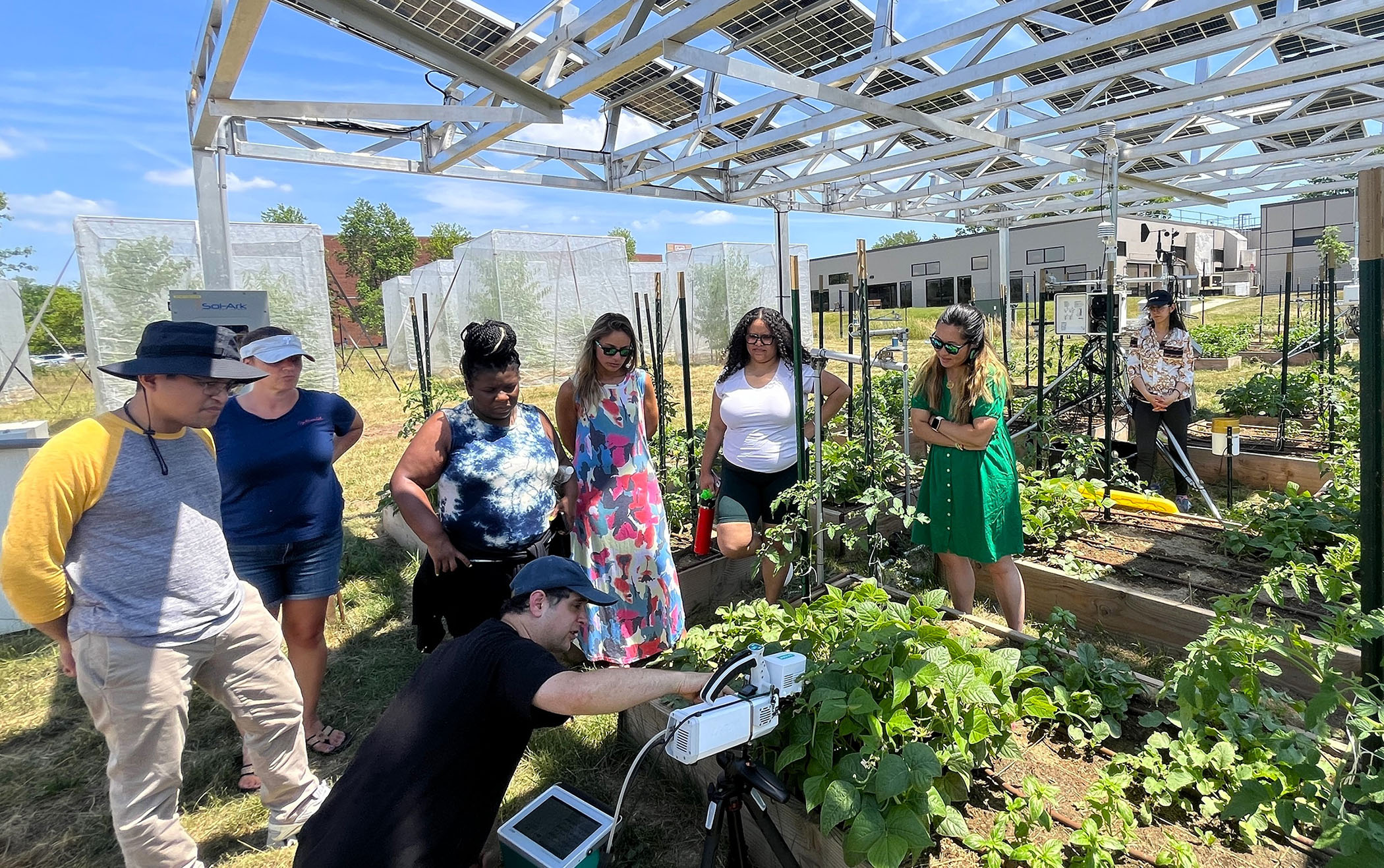Regional high school and middle school STEM educators had an opportunity to study environmental sustainability firsthand at Temple University Ambler on June 20 and 21.
“We had the honor of hosting an incredible group of middle school STEM teachers from Philadelphia-area school districts for a workshop focused on environmental monitoring using sensors,” according to Dr. Sujith Ravi, Associate Professor and Director of the Environmental Science Program in the College of Science and Technology’s Department of Earth and Environmental Science.
“The workshop explored how teachers can utilize single-board computers to develop low-cost environmental data collection projects for their classrooms,” he said. “We thoroughly enjoyed learning about sensor-based environmental monitoring and gaining hands-on experience with low-cost monitoring systems. The insights and experiences shared were invaluable, and we look forward to developing collaborative learning modules and citizen science programs in the future.”
At Temple University Ambler, Ravi, PhD student and graduate research assistant Caroline Merheb and other College of Science and Technology students are engaged in a multi-year study of urban agrivoltaics at the Temple Ambler Field Station Research Array. The extensive research is examining whether the implementation of agrivoltaics in vacant urban spaces provides additional environmental and socioeconomic benefits, including buffering heat stress, extending seasonal range limits of some crops, storm water management and the potential to address food deserts.
“Our extensive sensor network monitors around 50 physical variables at the Temple University agrivoltaic test site, including multiple sensors to track the spatial and temporal distribution of light, soil moisture, air/soil temperature, panel temperature, wind dynamics and electricity generation,” Ravis said.
Merheb recently won the “agrivotlaic design competition,” part of the AgriVoltaics World Conference 2024.
According to the AgriVoltaics World Conference, the Student Design Competition "aims to inspire students to think creatively and holistically about energy integration across rural and urban landscapes."
"The purpose of this competition is to provide students an opportunity to develop innovative agrivoltaic design concepts that address community sustainability challenges across the food-energy-water nexus," according to the conference website. "The AgriVoltaics World Conference, now in its 5th year and spanning five continents, provides high-level scientific exchange and great networking opportunities. It unites the global community working on dual-use solutions in the belief that agrivoltaics at multiple scales can help build food-energy-water resilience — this was the first time this meeting is held in the United States."
Merheb and fellow Earth and Environmental Science PhD student Pralad Phuyal led the June 21 and 22 STEM teacher workshop, which included an overview of grant research challenges in environmental science; environmental monitoring using sensors for research, education and citizen science projects; the basics of environmental monitoring; hands-on opportunities with field-sensor systems; a tour of the ongoing Solar Array project at Temple Ambler; and post-workshop lesson development. This program was supported by a United States National Science Foundation CAREER award received by Dr. Ravi.
“We are immensely grateful for the amazing support from Temple Ambler and Amber Field Station,” he said. “A special thank you to Kevin Orangers, Josh Caplan, Mariana Bonfim, Rhonda Geyer, Michael Bavas and Reid Overturf, without whom this event would not have been possible.”

